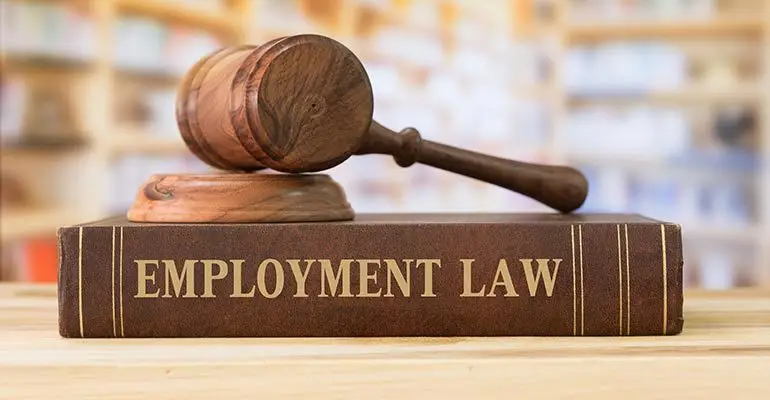EEOC Complaints: 8 Tips to Help You Win Your Case

The Equal Employment Opportunity Commission (“EEOC”) is a federal agency that enforces laws against certain workplace discrimination, harassment, and retaliation. Before you can sue the employer in court, the EEOC must investigate certain claims. Navigating the EEOC’s process can be complex. This blog provides a few tips to help you better prepare and present your case throughout the EEOC process.
1. Understand the Basics of EEOC Complaints or “Charges”
Complaints filed with the EEOC are referred to as a “Charge of Discrimination” or simply a “Charge.” Generally, you must file a Charge within 180 days from the date of the alleged discrimination. This period can extend to 300 days under certain circumstances. In Florida, there is generally a 300-day deadline to file your Charge with the EEOC. However, determining which deadlines apply heavily depends on the facts of each case.
You should also familiarize yourself with the laws enforced by the EEOC. This agency enforces many—but not all—workplace issues. If the EEOC does not have jurisdiction over your claims, it is possible another state or federal government agency does. In other words, all hope is not lost. It just means you may have to sue the employer under a different law and/or with a different state or federal agency. The table below provides information regarding which laws and claims are within the EEOC’s jurisdiction.
Laws Enforced by the EEOC
|
Law |
Description |
|
Title VII of the Civil Rights Act (“Title VII” or “Title 7”) |
Prohibits employment discrimination based on race, color, religion, sex (including pregnancy, sexual orientation, and gender identity), or national origin. |
|
Title I and Title V of the Americans with Disabilities Act (“ADA”) |
Prohibits employment discrimination against qualified individuals with disabilities. |
|
Age Discrimination in Employment Act (“ADEA”) |
Protects individuals who are 40 years of age or older from employment discrimination based on age. |
|
Pregnant Workers Fairness Act (“PWFA”) |
Requires covered employers to provide reasonable accommodations for known limitations related to pregnancy, childbirth, or related medical conditions. This newly enacted law went into effect on June 27, 2023. |
|
Equal Pay Act (“EPA”) |
Prohibits gender-based wage discrimination for substantially equal work in the same establishment. The EPA is unlike many of the above-listed laws because an individual alleging a violation of the EPA may file a complaint directly in court and is not required to file with the EEOC beforehand. |
|
Genetic Information Nondiscrimination Act (“GINA”) |
Prohibits employment discrimination based on genetic information about an applicant, employee, or former employee. |
Laws NOT Enforced by the EEOC
|
Law |
Description |
|
Title II and Title III of the Americans with Disabilities Act (“ADA”) |
Prohibits disability discrimination by state and local governments and public accommodations, enforced by various federal agencies. |
|
Fair Labor Standards Act (“FLSA”) |
Regulates minimum wage, overtime pay, and child labor, enforced by the Department of Labor. |
|
National Labor Relations Act (“NLRA”) |
Protects workers’ rights to unionize, bargain, associate, and more, enforced by the National Labor Relations Board. |
|
Section 1981 of the Civil Rights Act (“Section 1981”) |
Protects the right to make and enforce employment contracts without discrimination, enforced through the courts. |
|
Occupational Safety and Health Act (“OSHA”) |
Sets safety requirements for workplaces, enforced by OSHA. |
|
Workers’ Compensation Laws |
Provides compensation for job-related injuries and illnesses, enforced by state and federal agencies. |
Sources
Workplace Laws Not Enforced by the EEOC
2. Gather and Preserve Evidence
Documentation is key in a lawsuit.
- Report Incidents Promptly: Be proactive in reporting inappropriate, discriminatory, harassing, or abusive behavior to your supervisor, Human Resources department, management, and/or union. Employers often argue they cannot be held responsible for behavior they were unaware of.
- Detailed Records: Keep thorough records of all incidents, including dates, times, locations, and names and job titles of relevant persons. This documentation is crucial because strong evidence can lead to higher compensation. Employers may create documentation to use against you, so maintaining your own records is vital.
- Retain Copies: Keep copies of all complaints of discrimination or harassment. Do not rely on your employer to provide these once you decide to take legal action. If terminated, you may quickly lose access to important emails and documents, so have your copies ready to share with your attorney.
Consider creating a detailed timeline of events to make your case stronger and more actionable. This timeline should include dates, locations, names of individuals involved, and descriptions of incidents where you believe discrimination occurred. Your timeline is a living document. Review it regularly and update it with any new incidents or evidence. This ensures that your timeline remains accurate and comprehensive.
It is also important to be cautious when working with confidential information. Depending on the nature of the documentation, the employer might try to argue that you violated some rule or law by downloading it to your personal device. Ensure you follow the applicable rules and laws while saving information that can assist your case.
3. Consider Legal Representation
Consult with an experienced employment attorney early in the process. An attorney can provide invaluable guidance, help you navigate complex legal issues, and advocate on your behalf.
- Benefits of Representation: An experienced employment attorney can guide you through the EEOC process, protect your rights, enhance your credibility, and improve your chances of a favorable outcome. Legal representation can also make employers more willing to settle.
- Handling EEOC Investigations: Every attorney handles EEOC investigations differently. Some may represent clients from the beginning to the end of the EEOC process—from filing the charge of discrimination through interviews, mediation, and obtaining the right to sue. Other attorneys may only step in after the EEOC process concludes. At Wenzel Fenton Cabassa, P.A., we often guide clients through the EEOC process so they don’t have to do it alone. Having an attorney can significantly alter the course and outcome of your case.
4. Consider Coworkers
Engaging with coworkers regarding your claim can be both beneficial and risky. Coworkers can provide valuable support and evidence, but discussing your case with them requires careful consideration. Speak with your attorney before taking any action on your own in this capacity.
That said, identifying supportive coworkers early on can be advantageous as you gather evidence. Coworkers often witness incidents of discrimination, harassment, or retaliation. Their firsthand accounts can corroborate your claims and strengthen your case.
Additionally, coworkers can serve as “comparators,” which may be helpful—or even crucial—to your case. If your claim is related to disparate treatment, meaning you were treated differently than other employees (due to race, gender, age, etc.) despite the same behavior, you should try to identify examples. Usually, good comparators should engage in the same basic conduct as you and be subject to the same decision-maker as you. Think of people who have similar job responsibilities and employment history as well. If you can point to specific employees who were treated more favorably by the same supervisor despite being in a very similar situation to you, that can strengthen your case.
5. Maintain Professionalism
Maintaining professionalism in all communications before, during, and after the EEOC process is crucial. How you present yourself can significantly impact how your case is perceived by the EEOC investigators and, eventually the judge. Keep in mind that any documented correspondence with your employer, including emails, text messages, and letters, may end up in front of an EEOC investigator or even a judge one day. It is essential to always communicate respectfully and clearly, regardless of the circumstances.
6. Preparing for the EEOC Interview
Be ready for interviews.
- Interview Process: The EEOC may conduct interviews at different stages—sometimes before and sometimes after the Charge is filed. This can depend on many factors, including whether you have legal representation. Your attorney can help you prepare for these interviews, ensuring you present your case effectively.
- Importance of Documentation: Good documentation supports your statements during interviews and can make a strong impression on the EEOC investigator.
7. Preparing for Mediation
The EEOC often offers mediation as a way to resolve disputes early in the process. This option is both free and voluntary. Mediations can be in-person or virtual. Understand that EEOC mediators do not make determinations regarding who is right or wrong like judges do. Instead, they are trained to be neutral and help the parties facilitate a beneficial resolution. Mediation can provide a confidential and quicker resolution to your case compared to a prolonged investigation or litigation—saving you cost, time, and energy.
To maximize the benefit of mediation, prepare thoroughly. Organize your evidence, understand your goals, and get ready to negotiate. While you may decide to contact the mediators prior to your mediation to ask how you should prepare, if you do so, maintain your composure and be respectful. It is important to make the right impression. If you have an attorney, your attorney will be the person to prepare you for mediation.
It is also important to maintain your composure during the mediation. Often, all parties involved may feel strong emotions about the situation and how it is being addressed—which is understandable. If you have been discriminated against, of course you want to ensure the outcome of your claim is just. However, be careful to not let your emotions during mediation impact you for the worst. It is possible employers will say things that you believe, or even know, are untrue. Realistically, they will not come to mediation and admit they broke the law (at least, they will not intentionally admit that). You should expect that you will hear things that may upset you. Still, you want to maintain your composure at all times.
Remember that employers often have attorneys who routinely assist them or other employers in similar employment matters. You may be at a disadvantage if you show up to mediation alone while the employer has a team of people ready to assist. At Wenzel Fenton Cabassa, P.A., we help our clients throughout the entire EEOC process.
8. Stay Patient
The EEOC process can be lengthy. Patience is essential, as investigations, mediations, and potential litigation can take time. If employers choose to settle quickly, the EEOC process may be avoided altogether. However, filing with the EEOC may be the only option if a settlement cannot be reached.
The Takeaways
The most important point to take away from all these tips is a simple one—talk to an attorney. There is a good chance this is your first experience filing an EEOC complaint. Even if it is not, you probably do not have the legal expertise necessary to guarantee an ideal outcome.
With an experienced employment attorney working on your case, you do not need to understand every step of the EEOC process. You will have someone on your side who already does.
Please Note: At the time this article was written, the information contained within it was current based on the prevailing law at the time. Laws and precedents are subject to change, so this information may not be up to date. Always speak with a law firm regarding any legal situation to get the most current information available.
Related Posts

FREE HELP GUIDES
Dealing with unpaid wages, discrimination or wrongful termination? Get the information you need to protect your workplace rights. We offer employment law resources to help you fight for workplace justice.




